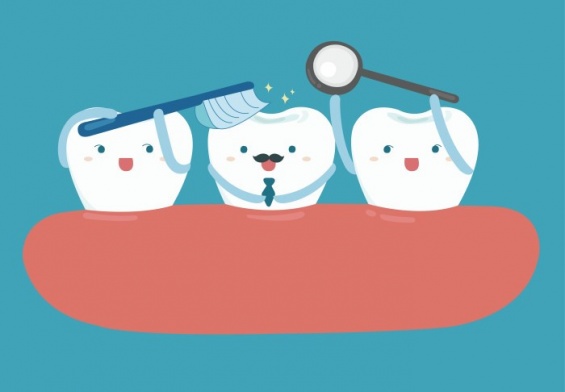Of course, every little detail matters when it comes to your child’s health—including their baby teeth. Often underestimated because of their temporary nature, baby teeth play a huge role in your child’s overall development. Many concerned parents out there have questions about the care and importance of their child’s baby teeth. In this article, we’ll discuss some of the most common questions about baby teeth and provide expert advice on how to keep your child’s smile healthy and strong.
Why Are Baby Teeth Important?
One of the most common misconceptions is that baby teeth don’t matter, which is understandable because they eventually fall out. However, this is pretty far from the truth. Baby teeth are important for several reasons:
- Speech Development: Baby teeth help children articulate words correctly. Missing teeth can cause speech impediments, which may require costly speech therapy later on.
- Chewing and Nutrition: These teeth are needed to chew food properly. Poor chewing due to missing teeth can affect your child’s nutrition and digestion, as well as potentially cause them to choke.
- Guiding Permanent Teeth: Baby teeth act as placeholders for permanent teeth, guiding them into the correct position. Early loss of baby teeth can lead to misalignment of the permanent teeth, which would require orthodontic treatment later in life.
- Jaw and Facial Development: Healthy baby teeth support the growth and development of the jaw and facial bones. Neglecting them can lead to developmental issues with the facial structure.
Neglecting baby teeth can result in complications that extend much further than just dental health. Not taking the proper care of these temporary teeth can cause a range of issues like misaligned permanent teeth, speech problems, and difficulty eating.
When Should My Child First Visit the Dentist?
Another common question has to do with when a child’s first dental visit should be. According to the American Academy of Pediatric Dentistry, a child should have their first dental visit by age one or within six months of their first tooth appearing.
Early dental visits are necessary for several reasons:
- Reducing Anxiety: Exposing your kids early to dental visits can help your child become comfortable with the environment, so they’re not anxious or afraid in the long term.
- Spotting Developmental Issues: Early visits let the dentist find any potential problems with jaw development, tooth alignment, and even speech patterns early, before they become more serious issues. Addressing these issues early can prevent more serious problems down the road.
- Building Good Habits: These visits give you an opportunity as parents to learn about proper oral hygiene techniques, dietary recommendations, and fluoride needs. Establishing these habits early helps your child maintain good oral health for life.
Should Cavities in Baby Teeth Be Treated?
Many parents also that cavities in baby teeth don’t need to be treated because the teeth will eventually fall out. This is a dangerous misconception. Cavities in baby teeth need to be taken seriously and treated promptly. Here’s why:
- Pain and Infection: Untreated cavities can lead to pain, discomfort, and even infections that could spread to other parts of your child’s body.
- Impact on Permanent Teeth: Baby teeth guide the permanent teeth into place. If a baby tooth is lost prematurely due to issues, the permanent tooth may come in crooked or out of place, leading to the need for orthodontic treatment.
- Overall Health: Dental infections can affect a child’s overall health, leading to issues that make it hard to eat, sleep, and concentrate in school.
Fluoride plays a huge role in preventing baby teeth cavities. It makes enamel stronger, so the teeth don’t decay as much. While some parents worry about the safety of fluoride, it’s highly effective and safe when used as directed. For children under three years old, a smear of fluoride toothpaste is recommended, and a pea-sized amount for children over three.
How to Care for Baby Teeth?
Properly caring for baby teeth begins even before the first tooth emerges. Here’s a step-by-step guide:
- Clean Gums Before Teeth Emerge: Before the first teeth appear, you need to clean your baby’s gums with a soft, damp cloth after feeding them. This helps remove bacteria and gets your baby comfortable with an oral care routine.
- Start Brushing When the First Tooth Appears: As soon as the first tooth appears, start brushing with a baby toothbrush and a small amount of fluoride toothpaste. Brush twice daily—once in the morning and once before going to bed.
- Introduce Flossing: Once your child’s teeth start to touch each other, it’s time to start flossing. This helps remove food particles and plaque between the teeth, which can’t be done by brushing alone.
- Regular Dental Visits: Regular dental check-ups are necessary for maintaining your child’s oral health. These visits allow the dentist to see how your child’s teeth are developing and catch any potential issues early.
Common Concerns
Parents often worry about behaviors like teeth grinding and thumbsucking. Here’s what you need to know about them:
- Teeth Grinding: Teeth grinding, or bruxism, is pretty common in children and is usually related to stress or anxiety. It doesn’t cause any harm for the most part, but if it continues for a long time, a dentist may recommend a mouthguard to preserve the teeth.
- Thumbsucking: Thumbsucking is a natural reflex for babies, but if it continues past age 4 or 5, it can affect the alignment of the teeth and the development of the jaw. If your child is still sucking their thumb at this age, it’s a good idea to consult your dentist for advice.
- Diet and Oral Health: Diet plays a huge role in maintaining healthy baby teeth. Limit sugary snacks, and drinks while encouraging your child to eat a balanced diet rich in fruits, vegetables, and calcium. Avoid giving your child sugary drinks in bottles or sippy cups, especially at bedtime, since this can lead to cavities.
Understanding Baby Teeth Care
Baby teeth are certainly temporary, but their impact they have on your child’s health is anything but. With an understanding of their importance and taking steps to care for them properly, you’re setting the foundation for a lifetime of healthy smiles. Remember, early dental visits, proper oral hygiene, and a balanced diet are important for keeping those tiny teeth—and the permanent ones that follow—in the best possible shape. If you have any concerns or questions, don’t hesitate to consult your pediatric dentist.




